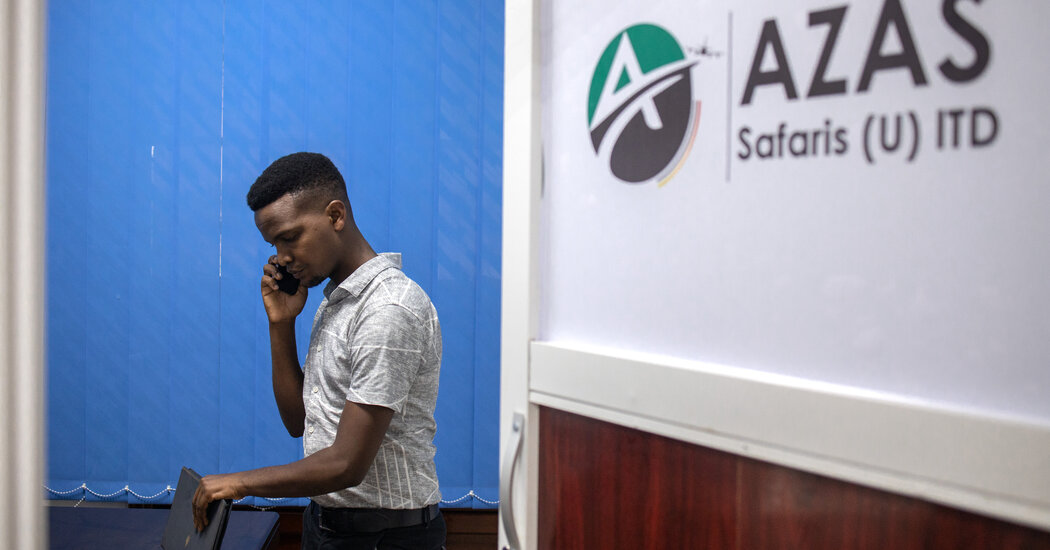Sitting on a sofa in his tiny office, Simon Azarwagye, the owner of a travel company called Azas Safaris, points to numbers on his laptop — visual aids for a story that still makes him miserable to tell.
“See that?” he says, gesturing to a graph marked “quote requests.” It represents the 89 prospective customers he was communicating with earlier in the year. All of them had inquired about tours of Uganda’s lush forests; the expeditions cost about $15,000 per couple for 13 days of hippo and gorilla spotting.
That was before the country’s Parliament started debating one of the harshest anti-L.G.B.T.Q. laws in the world. It included a death penalty provision for “aggravated homosexuality” — defined as same-sex relations with someone who is disabled, H.I.V.-positive or elderly, among other categories — and criminalized defending gay men and lesbians in public.
News of the bill made international headlines. On the day it was signed in late May, President Biden and leaders around Europe threatened sanctions that Uganda, which has an economy that lags in size behind those of Libya and Sudan, can ill afford. Within weeks, 60 of Mr. Azarwagye’s 89 potential clients, most of whom hail from either Europe or the United States, had canceled their plans or stopped returning messages.
“They ghosted me,” he said, noting that he typically secures paying customers out of two-thirds of all inquiries. “A few who spoke to me explained, ‘It’s not safe to come to Uganda because of that law.’”
Since the passage of the Anti-Homosexuality Act of 2023, as the law is officially known, there have been arrests and hundreds of human rights violations involving L.G.B.T.Q. people, according to a report by Convening for Equality, a coalition of human rights groups. Gay and transgender people have been evicted by landlords, as required by the law. And fear is keeping gay and transgender patients from health clinics, which are obliged by the law to report them to the police.
More quietly, the law is exacting a grim economic toll.
The hospitality industry is hurting, hoteliers say. Textile makers say buyers in the United States, in Britain and around Europe have canceled orders, fearing that a “Made in Uganda” label on a garment is now bad for business. Construction companies in Uganda say Western financial backers are spooked.
“We had a face-to-face meeting with an American private equity firm, and one of the guys, who runs the firm, made clear he had…
Click Here to Read the Full Original Article at NYT > Travel…
